Don’t Be a Stickybeak — and Other Home-Related Lingo From Abroad
My profession requires having a solid command of the English language. At least that’s something I like to tell people (or put at the beginning of an article about language, because it sounds interesting). But the truth is, it’s darn near impossible to keep up with the way people use any particular language.
The way we speak and the words we use are constantly changing and evolving. Humans have a tendency to make their own rules anyway, then create new rules that reverse the old rules. Like, did you know the original meaning of “awful” was “to inspire wonder”? Somewhere along the way, we decided to make it mean the opposite.
Home and design terms are no exception to the language madness. And in light of recently announcing Houzz sites in the U.K. and Australia, we thought it would be fitting to take a look at how everyday terms differ across oceans.
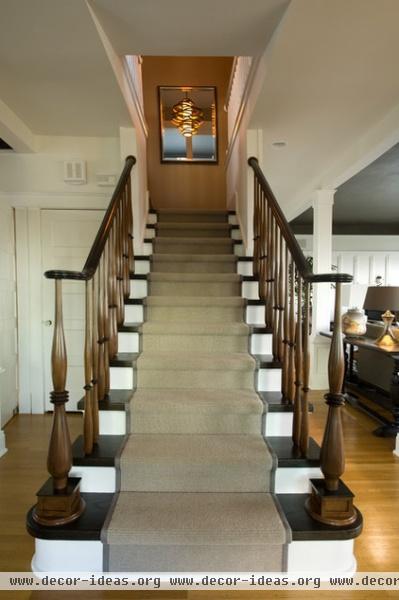
For example, when Americans travel to the U.K. or Australia, they might be confused about what floor they’re on. There the first floor is located on what Americans would call the second. And what we call the first floor, they call the ground floor.
So, if you’re ever in, say, London or Sydney, you actually have to ascend a flight of stairs to reach the first floor.
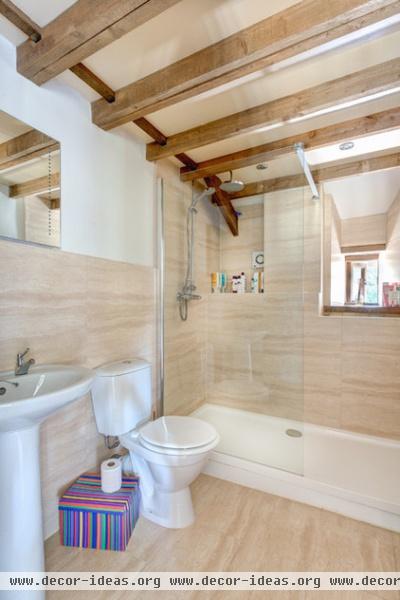
Author Jonathan Bernstein, who was born in Scotland and now lives in Los Angeles, wrote Knickers in a Twist: A Dictionary of British Slang about his experience trying to figure out why some U.K. words and phrases percolated across the Atlantic and some didn’t.
Few in America use “loo” when referring to the bathroom, for example. “When I came to America, I’d be talking to someone, and there’d be nothing but a blank look,” Bernstein says. “They didn’t understand, or I didn’t understand. ‘Restroom’ was one of those words that gave me years of trouble. A restroom to me was just a room upstairs for relaxing or something.”
Through Bernstein’s research, he found that a lot of U.K. lingo traveled with immigrants during the 1800s, who created a melting pot of cultures. “A lot of people just misheard stuff,” he says. “There was a lot of Jamaican patois, Yiddish — it was just an amalgamation of so many languages.”
Word origins aren’t always clear even in the original countries. In Bernstein’s native Glasgow, the word everyone used for bathroom when he was growing up was “cludgie”; he has no clue of its origins. “It’s just that Scottish thing of trying to make things as disgusting as possible,” he says.
Here are some other common terms — or uncommon, depending on where you live:
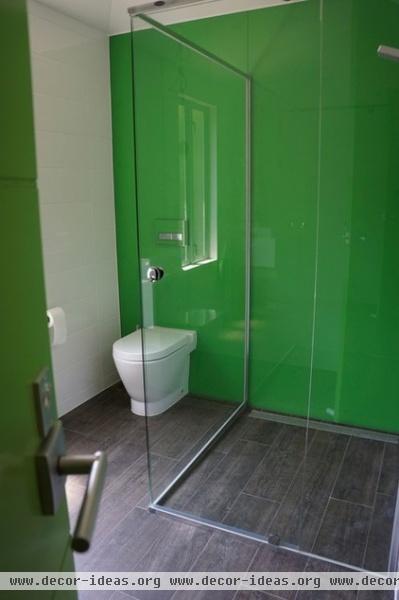
Toilet (U.S.)
Dunny (Australia)
Loo (U.K.)
I’d imagine that being an etymologist in Australia is one of the most difficult and frustrating jobs. The lingo there seems to favor brevity and slang over any sort of formal language.
“Dunny,” a slangy word used for a “toilet,” fits that description on both counts. Surprisingly, this is one of the few words whose history is somewhat known. According to Australian National University, “In cities and towns the pan-type dunny was emptied by the dunny man, who came round regularly with his dunny cart. ‘Dunny’ can now be used for any toilet. The word comes from British-dialect ‘dunnekin,’ meaning ‘dung-house’. First recorded 1933.”
Knock, knock. “Are you all done in the dunny, honey?”
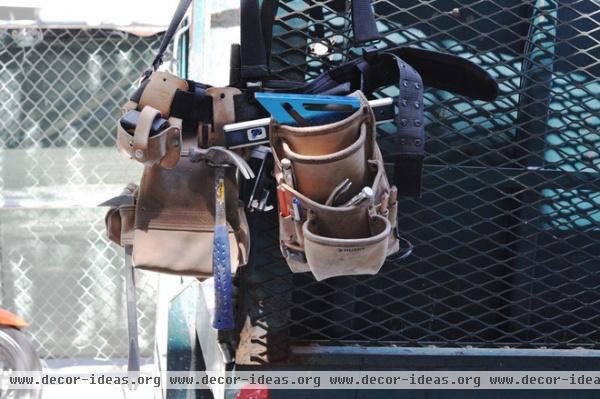
Electrician (U.S.)
Sparky (U.K)
When hiring a skilled laborer in the U.K. you’d better know what to ask for. Brits love to come up with endearing nicknames, so if you’re looking for a carpenter, you’ll want to ask around for a chippie. Need a bricklayer? Search for a good brickie in town.
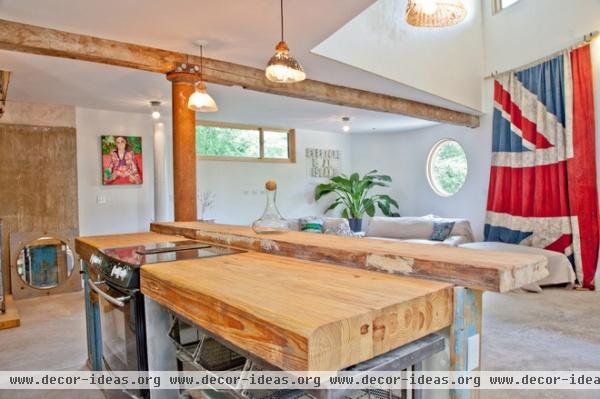
Kitchen countertop (U.S.)
Benchtop (Australia)
Worksurface (U.K.)
Jason Chuck, the Houzz manager in Australia, surmises that “benchtop” has its origins in a workshop workbench, but like many Aussies, he doesn’t really know or care. I tried asking him what a bench (like what you sit on) is called, and he was confused, thinking I was talking about sitting on a kitchen counter. “How about a park bench?” I ask. “Oh,” he says. “We’d call that a park bench.” Riiiiight.
Vivienne Sung, Houzz’s U.K. manager, was a little more blunt about “worksurface.” “Because it’s a surface you work on,” she says, playfully. “We call things what they are.” Hey!
But would a Brit understand what a countertop was? “No,” she says. “You could say, ‘On top of the kitchen counter’ but not ‘countertop.’” Huh?
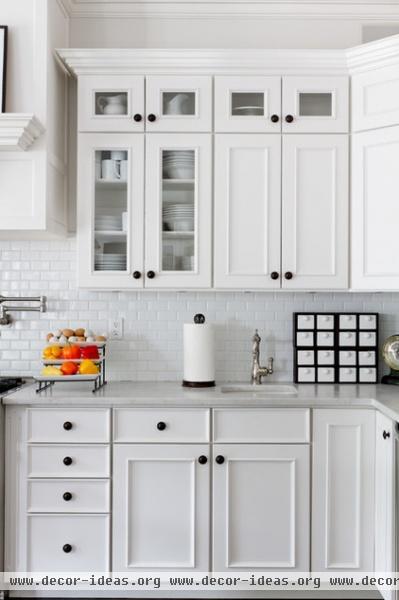
Backsplash (U.S.)
Splashback (U.K. and Australia)
I asked Chuck and Sung why their countries decided to flip the words “back” and “splash” around, and they were both aghast. “Why did you flip these two words?” Sung asked.
So which did come first? Who knows? I couldn’t find the answer, but I assume whichever country switched it did so just to spite the other.
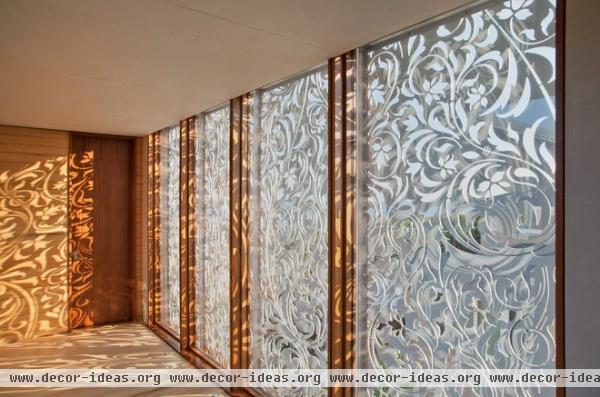
Aluminum (U.S.)
Aluminium (U.K. and Australia)
I always thought Brits and Aussies were just pronouncing this wrong, with that extra “i” sound, but it turns out that both both spellings and pronunciations are somewhat technically accurate. It all goes back to the scientist who discovered the metal, which he first called alumium, then aluminum; then he changed it to aluminium to conform with other -ium elements on the periodic table. The American Chemical Society decided to go back to aluminum in 1925 and, well, there you have it.
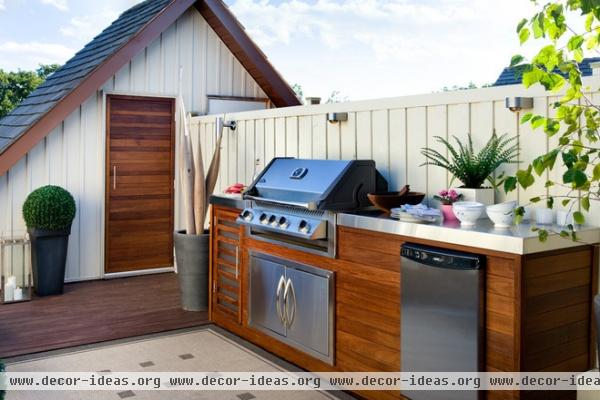
Barbecue (U.S.)
Barbie (Australia)
Aussies are famous for shortening everything. Spaghetti Bolognese is simply “spag bol,” and other words get so shortened and mangled that you don’t even know what’s going on. “Afternoon,” for example, has somehow become just “arvo.”
“We’re lazy,” says Chuck. “Whatever is most obvious and blunt, we go with that. It just naturally happens. The first time you meet anyone in Australia, you’re immediately given a shortened nickname.”
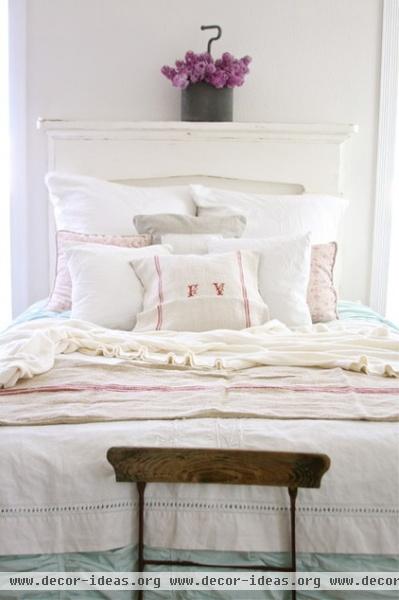
Linen (U.S.)
Manchester (Australia)
This, according to Houzz Australian editor Jenny Drew, is commonly used to describe “household linens as a whole,” she says. Wait, what? So, if I were talking about a Shabby Chic–style house, I’d say all the furniture was draped in white Manchester?
“I can only imagine the confusion of a shop assistant in Manchester being asked for that,” says Drew.
Is it only me who suspects that Aussies delight in confusing others with their language?
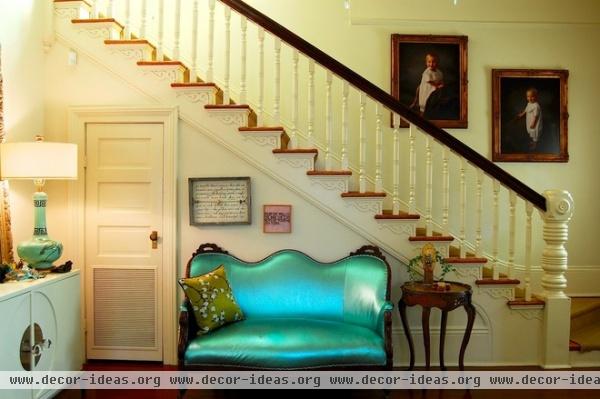
Loveseat (U.S.)
Snuggler (U.K.)
Some terms are just charmingly, smashingly British to me, and this is one. While I don’t ever foresee many U.K. or Aussie terms being adopted in the U.S., this is one I could definitely get behind.
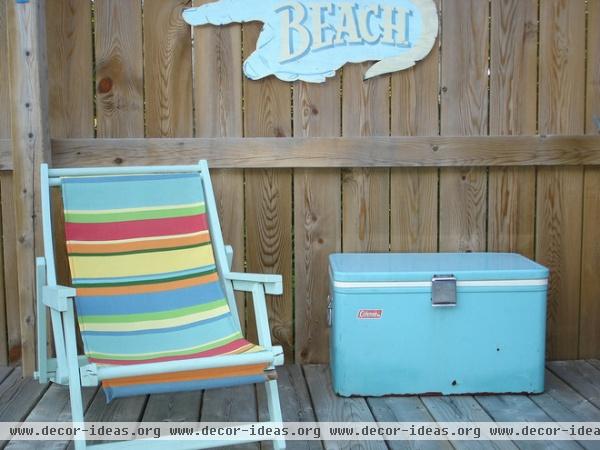
Cooler, ice box (U.S.)
Esky (Australia)
Esky is a brand of cooler in Australia that became so popular that the word became synonymous with ice boxes and coolers. It’s the same as Kleenex for tissues or Jacuzzi for hot tubs (though the latter are called spas in Australia).
“If I walked into a house that didn’t have an Esky, I’d be visibly panicked,” Drew says.
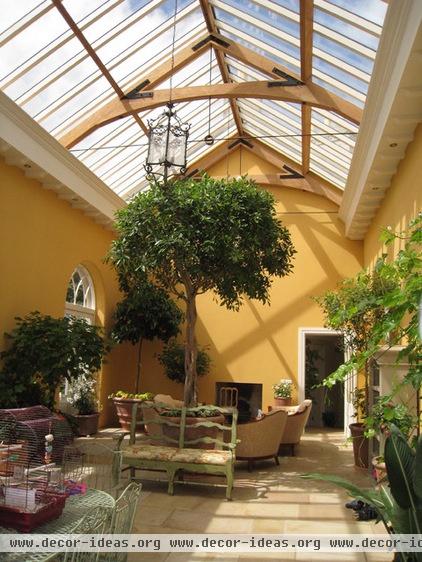
Sunroom (U.S.)
Orangery (U.K.)
An orangery is a very grand sunroom that has roots in royal palaces. Kensington Palace has a famous one. “It’s like a glorified greenhouse,” says Sung. “But it’s more of a talking point in a house, like a tearoom. It’s an old term for a glass room in a palace where they used to grow oranges.”
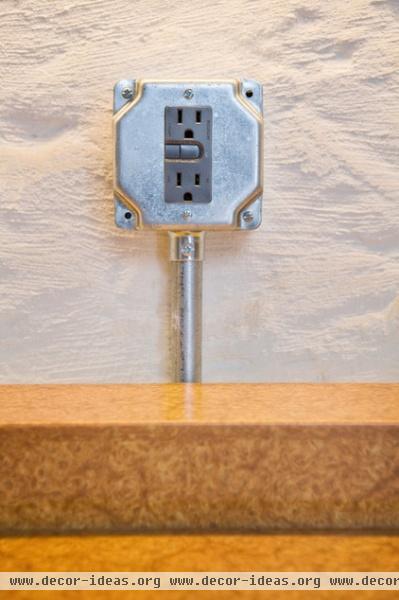
Outlet (U.S.)
Power point (U.K. and Australia)
No, that Londoner is not asking you where the slideshow software is to create a mind-numbing presentation; he’s looking for the outlet where he can charge his cellie.

Snoop (U.S.)
Have a nose (U.K.)
Be a stickybeak (Australia)
Our obsessive voyeurism when it comes to other people’s homes seems to be universal. If you’ve ever held an open house when selling your home, then you now know exactly what a stickybeak is.
Got a term unique to your country or city? Let us know in the Comments. Then check out the U.K. and Australia discussions on lingo.












